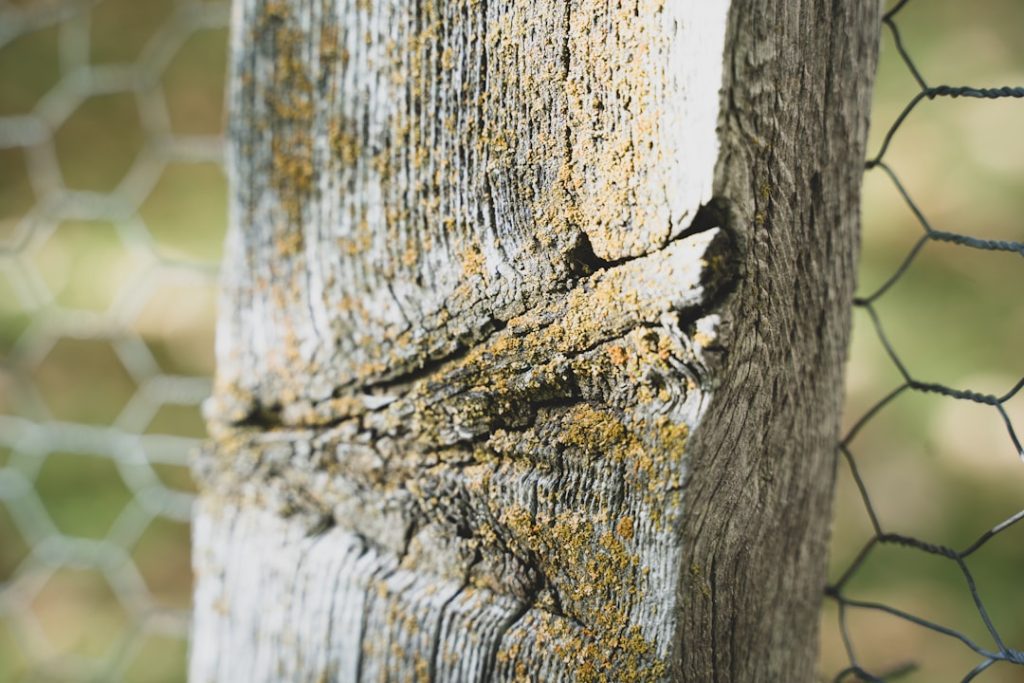Chickens are complex creatures with intricate social structures and behaviors that are crucial to understand when raising them. They are inherently social animals that thrive in groups and establish a hierarchical pecking order within their flock. This hierarchy helps maintain order and reduces conflict, making it an essential consideration when designing their living space.
Curiosity is a prominent trait in chickens, as they enjoy exploring their environment. They possess a strong instinct to scratch and peck at the ground in search of food, which should be accommodated in their habitat design. Chickens are diurnal, meaning they are active during daylight hours and rest at night.
This natural rhythm necessitates access to natural light and a secure roosting area for nighttime. Providing an environment that caters to these innate behaviors is crucial for the physical and psychological well-being of chickens. Additionally, chickens can form strong bonds with their human caregivers, often displaying affectionate behavior, especially when raised with regular human interaction from a young age.
This capacity for bonding can facilitate easier handling and training. A comprehensive understanding of chicken behavior is fundamental to creating an enriching and positive environment for these birds, ensuring their welfare and promoting a harmonious relationship between chickens and their caretakers.
Table of Contents
- 1 Creating a Designated Area for Chickens
- 2 Providing Enrichment for Chickens
- 3 Using Natural Deterrents to Prevent Scratching
- 4 Implementing Training Techniques
- 5 Regular Maintenance and Monitoring
- 6 Seeking Professional Advice if Necessary
- 7 FAQs
- 7.1 What are some ways to keep chickens from scratching up the lawn?
- 7.2 Why do chickens scratch up the lawn?
- 7.3 What are the potential drawbacks of chickens scratching up the lawn?
- 7.4 How can I protect my lawn from chickens without restricting their freedom?
- 7.5 Are there any benefits to allowing chickens to scratch up the lawn?
Key Takeaways
- Chickens are social animals and exhibit various behaviors such as scratching, dust bathing, and roosting.
- Designate a specific area for chickens to roam and provide shelter, nesting boxes, and perches.
- Enrich the chicken’s environment with toys, treats, and natural materials to encourage natural behaviors.
- Use natural deterrents such as rocks, mulch, or chicken wire to prevent chickens from scratching in unwanted areas.
- Implement training techniques such as positive reinforcement to teach chickens to follow commands and behaviors.
- Regularly maintain and monitor the chicken coop for cleanliness, safety, and any signs of illness.
- Seek professional advice from a veterinarian or experienced chicken keeper if encountering any issues or concerns with chicken behavior or health.
Creating a Designated Area for Chickens
Providing Space and Shelter
When creating a designated area for chickens, it is essential to consider their natural behaviors and needs. The living space should provide enough room for the chickens to move around freely and engage in their natural behaviors, such as scratching and pecking. It should also include a secure shelter for roosting at night and protection from predators.
Ensuring Health and Hygiene
The area should have access to natural light and fresh air, as well as be well-ventilated to ensure good air quality. Furthermore, the designated area should include suitable nesting boxes for the hens to lay their eggs, as well as perches for roosting during the day. It is crucial to provide a clean and comfortable environment for the chickens, with proper bedding and regular cleaning to prevent the buildup of waste and bacteria.
Designing for Safety and Efficiency
The area should be fenced off to prevent the chickens from wandering off and to protect them from potential predators. Moreover, it is essential to consider the layout of the designated area to ensure easy access for cleaning and maintenance. This includes designing the space in a way that allows for efficient waste management and easy collection of eggs.
Overall, creating a designated area for chickens requires careful consideration of their natural behaviors and needs, as well as providing a safe and comfortable environment for them to thrive.
Providing Enrichment for Chickens

Providing enrichment for chickens is essential for keeping them mentally and physically stimulated. This can help prevent boredom and reduce the likelihood of negative behaviors such as feather pecking and aggression within the flock. Enrichment can come in various forms, such as providing objects for pecking and scratching, hanging treats for them to peck at, or creating opportunities for them to explore new environments.
Additionally, providing perches and platforms within their living space can encourage natural behaviors such as roosting and jumping. This can also help to create a more dynamic environment for the chickens, allowing them to move around and exercise their muscles. Furthermore, introducing novel objects or changing the layout of their living space from time to time can provide mental stimulation and prevent habituation.
Moreover, allowing the chickens access to outdoor areas where they can forage for insects and plants can provide valuable enrichment. This allows them to engage in natural behaviors such as scratching and pecking, while also providing them with additional nutrients from their natural diet. Providing enrichment for chickens is an important aspect of their care, as it contributes to their overall well-being and helps to create a more fulfilling environment for them.
Using Natural Deterrents to Prevent Scratching
Preventing scratching behavior in chickens can be challenging, but there are natural deterrents that can help minimize its impact on certain areas. One effective method is to use physical barriers such as wire mesh or fencing to protect specific areas from scratching. This can help prevent damage to garden beds or sensitive landscaping while still allowing the chickens access to outdoor areas.
Another natural deterrent is using aromatic plants or herbs that chickens find unappealing. For example, planting lavender, mint, or rosemary around areas that need protection can help deter chickens from scratching in those areas. Additionally, using citrus peels or sprays made from citrus oils can also act as a natural deterrent, as chickens tend to avoid strong citrus scents.
Furthermore, providing alternative areas for scratching can help redirect the behavior away from sensitive areas. Creating designated scratching areas with loose soil or sand can provide an outlet for this natural behavior while protecting other areas from damage. Additionally, providing enrichment such as hanging treats or toys can also help redirect their focus away from destructive scratching behavior.
Overall, using natural deterrents to prevent scratching in chickens requires a multi-faceted approach that considers both physical barriers and behavioral redirection. By implementing these methods, it is possible to minimize the impact of scratching behavior while still allowing the chickens to engage in their natural behaviors.
Implementing Training Techniques
Implementing training techniques can be beneficial for managing the behavior of chickens and building a positive relationship with them. One effective training technique is using positive reinforcement, such as offering treats or praise when the chickens exhibit desired behaviors. This can help encourage behaviors such as coming when called or using designated areas for scratching and pecking.
Another training technique is using clicker training, where a clicker is used to mark desired behaviors followed by a reward. This method can be effective in teaching chickens specific commands or behaviors, such as returning to their coop at a certain time or using a specific perch. Additionally, using consistent verbal cues or hand signals can help communicate with the chickens and reinforce desired behaviors.
Furthermore, it is important to be patient and consistent when implementing training techniques with chickens. Training takes time and repetition, so it is important to set realistic expectations and be persistent in reinforcing desired behaviors. Additionally, it is important to consider the individual personalities of the chickens and tailor training techniques to suit their unique needs and abilities.
Overall, implementing training techniques with chickens can be a rewarding experience that helps build a trusting relationship and manage their behavior effectively. By using positive reinforcement, clicker training, and consistent communication, it is possible to teach chickens specific behaviors and commands that contribute to their overall well-being.
Regular Maintenance and Monitoring

Daily Tasks for Chicken Care
Daily tasks such as providing fresh food and water, cleaning their living space, and collecting eggs are crucial for maintaining the health and happiness of chickens.
Monitoring Chicken Behavior and Health
Regular health checks are important to monitor the chickens’ overall condition and detect any signs of illness or injury. Additionally, monitoring the behavior of the chickens on a daily basis is essential to ensure they are exhibiting normal behaviors and interactions within the flock. This includes observing their eating habits, activity levels, and social dynamics within the group. Any changes in behavior should be noted and investigated further if necessary.
Maintaining a Clean and Safe Environment
Regular maintenance of their living space is important to ensure a clean and comfortable environment for the chickens. This includes removing waste regularly, replacing bedding as needed, and ensuring proper ventilation and lighting within their shelter. Additionally, regular inspections of fencing and predator deterrents are important to maintain a secure outdoor area for the chickens.
By staying attentive to their needs and maintaining a clean and safe environment, it is possible to ensure the well-being of the chickens in your care.
Seeking Professional Advice if Necessary
Seeking professional advice is important when caring for chickens, especially if you encounter any challenges or concerns that require expert guidance. This can include consulting with a veterinarian who specializes in poultry health if you notice any signs of illness or injury in your chickens. A professional veterinarian can provide accurate diagnosis and treatment options to address any health issues that may arise.
Additionally, seeking advice from experienced poultry keepers or joining local poultry clubs can provide valuable insights and support when caring for chickens. These individuals may have practical knowledge and experience that can help address specific challenges or provide guidance on best practices for chicken care. Furthermore, seeking professional advice may also be necessary when implementing new management practices or making significant changes to your chicken’s living environment.
This can include consulting with animal behaviorists or poultry experts who can provide guidance on managing specific behaviors or improving the overall welfare of your flock. Overall, seeking professional advice when caring for chickens is an important aspect of responsible animal care. By consulting with experts in poultry health, experienced poultry keepers, or animal behaviorists, it is possible to address specific challenges and ensure the well-being of your chickens in a knowledgeable manner.
If you’re looking for more tips on keeping chickens, you might be interested in learning about the importance of the size of a chicken coop door. Check out this article to ensure your chickens have the right amount of space to move in and out of their coop.
FAQs
What are some ways to keep chickens from scratching up the lawn?
Some ways to keep chickens from scratching up the lawn include providing them with a designated area for scratching, using chicken wire or fencing to create a barrier, and providing them with plenty of enrichment and activities to keep them occupied.
Why do chickens scratch up the lawn?
Chickens scratch up the lawn as a natural behavior to forage for food, dust bathe, and create dust baths. This behavior is instinctual and helps them to maintain their health and well-being.
What are the potential drawbacks of chickens scratching up the lawn?
The potential drawbacks of chickens scratching up the lawn include damage to the grass and landscaping, potential erosion of the soil, and the creation of unsightly bare patches in the lawn.
How can I protect my lawn from chickens without restricting their freedom?
You can protect your lawn from chickens without restricting their freedom by providing them with a designated area for scratching, using chicken wire or fencing to create a barrier, and providing them with plenty of enrichment and activities to keep them occupied.
Are there any benefits to allowing chickens to scratch up the lawn?
Allowing chickens to scratch up the lawn can have some benefits, such as aerating the soil, reducing pests and insects, and providing natural fertilizer through their droppings. However, it is important to manage their scratching behavior to prevent excessive damage to the lawn.
Meet Walter, the feathered-friend fanatic of Florida! Nestled in the sunshine state, Walter struts through life with his feathered companions, clucking his way to happiness. With a coop that’s fancier than a five-star hotel, he’s the Don Juan of the chicken world. When he’s not teaching his hens to do the cha-cha, you’ll find him in a heated debate with his prized rooster, Sir Clucks-a-Lot. Walter’s poultry passion is no yolk; he’s the sunny-side-up guy you never knew you needed in your flock of friends!







